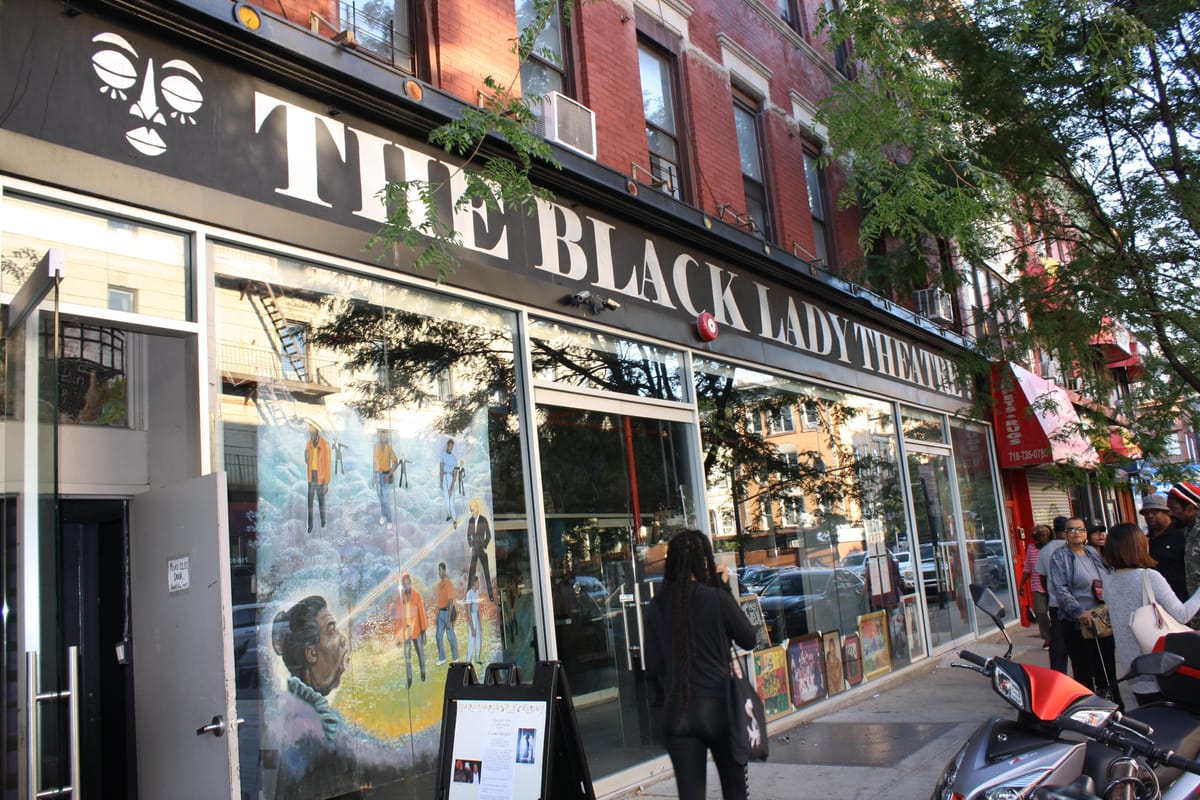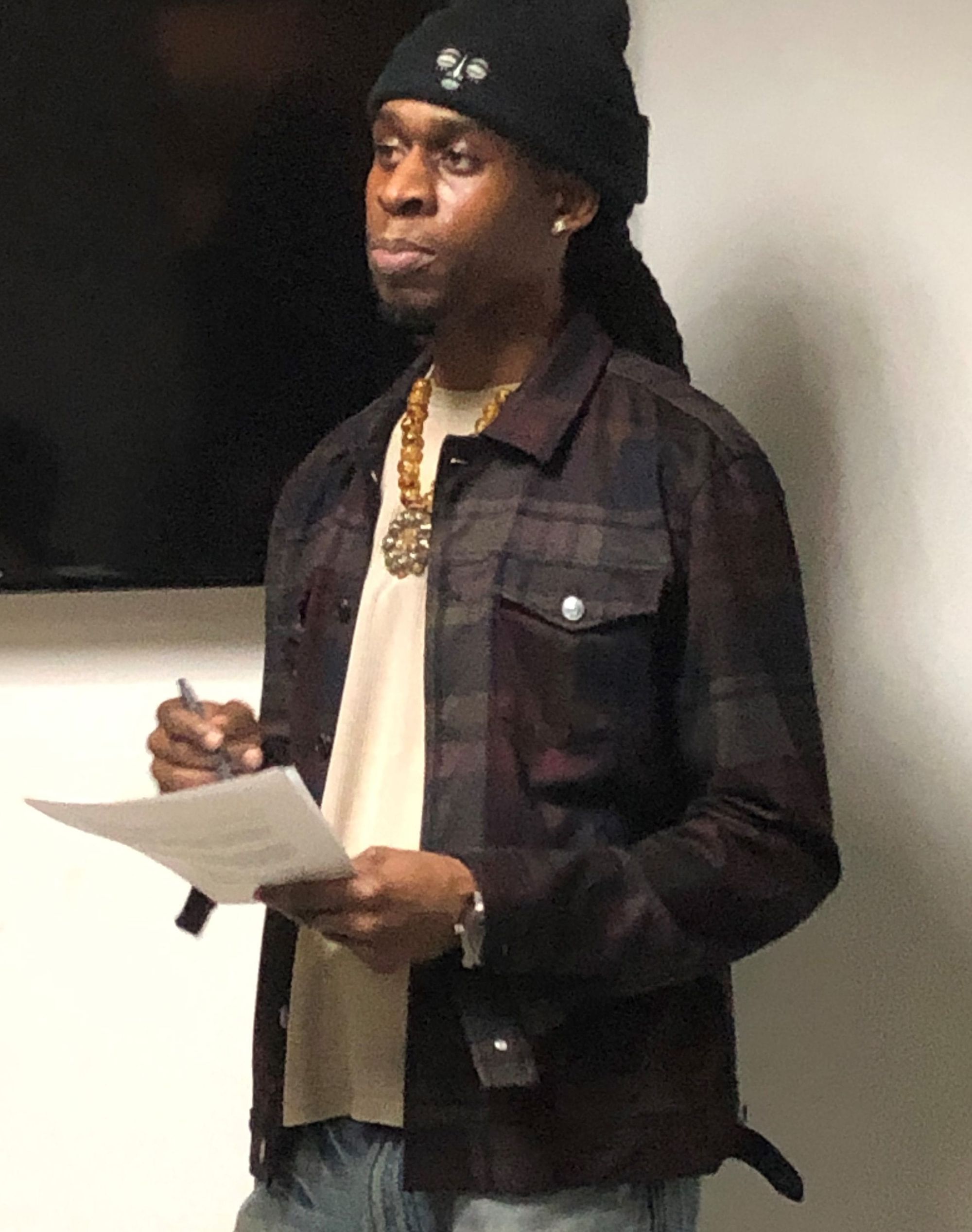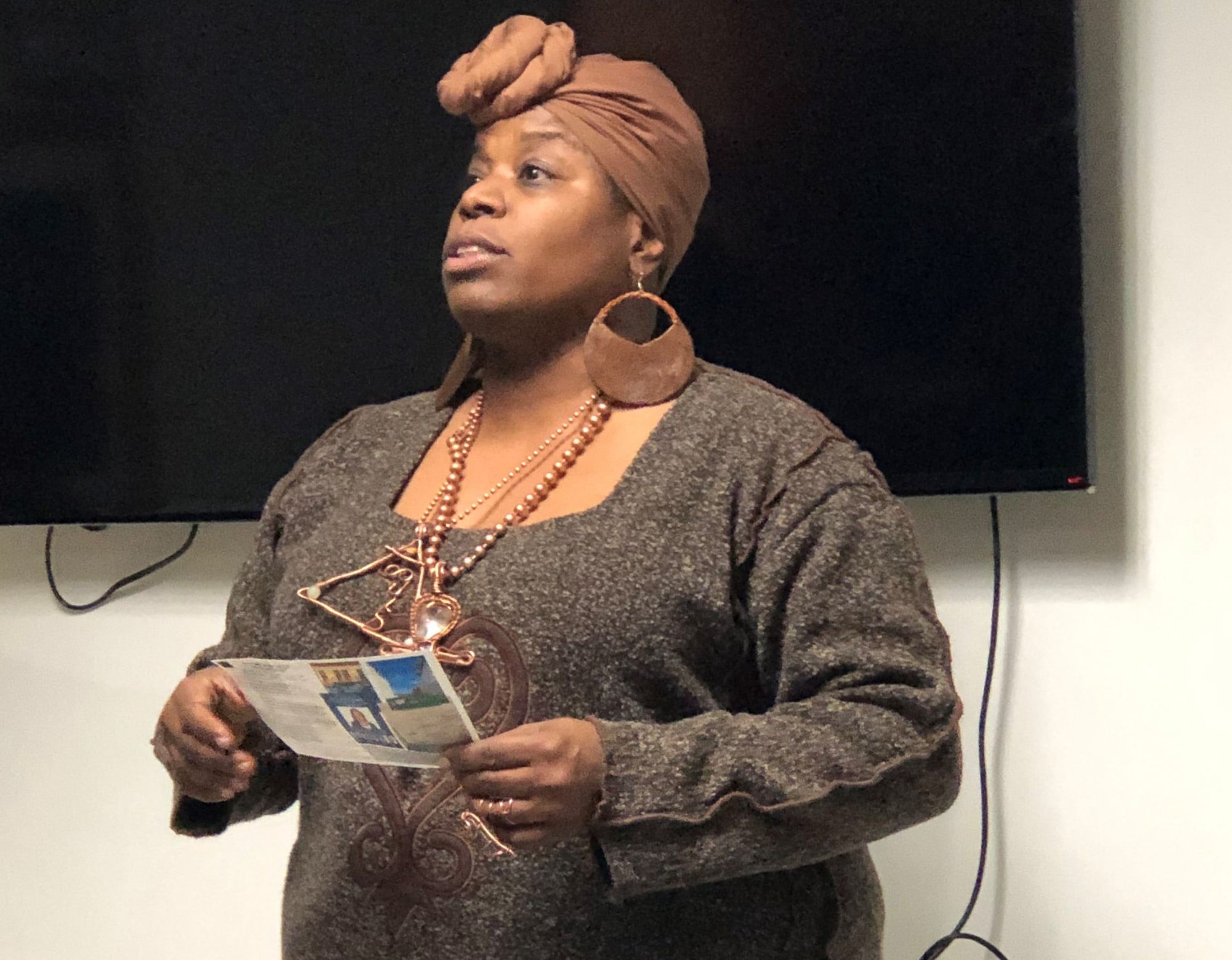Supporters of a Shuttered Black Cultural Institution Refuse to Simply Walk Away


CROWN HEIGHTS – Since 1984, The Black Lady Theatre, located on Nostrand Avenue near Park Place, has served as an arts venue for Afro-centric shows and a “safe place” to discuss and explore issues that impact the Black community.
It’s now shuttered. A note on the theater’s website states, “Due to unfortunate circumstances, all events, classes and workshops held at TBLT are on hold until further notice.”
On December 30, the New York City Marshal Office placed an eviction notice on the property. It stated that the landlord, identified as 750 Nostrand 123 LLC, has taken possession of the premises under a civil court warrant. It identified Clarence Hardy and his son, Omar Hardy, as the tenants.
In a longstanding legal dispute, the Hardys claim that they are the rightful owners of the property located in rapidly gentrifying Crown Heights.
The father and son team don’t intend to walk away from the historic theater that was once a gathering place for civil rights activists.
“We’ve established a legal team, and we are going to continue to fight this injustice,” Omar Hardy told Bklyner, days after a rally outside the theater on Martin Luther King Jr. Day. He declined to give specific details about their legal strategy.
Bklyner contacted Mendel Gold, listed on city documents as the building owner, for comments. But Gold, who owns several other properties in Crown Heights, did not return any of our calls.
Omar Hardy explained that his father first met New York Civil Court Judge John L. Phillips Jr., who bought the property in 1984, ten years later, in 1994. They became business partners two years later.
Before Phillips died in 2008, he accumulated about $10 million worth of properties he bought in Central Brooklyn’s predominantly Black neighborhoods. His property holdings included several apartment buildings and two theaters, according to a New York Times obituary. In addition to The Black Lady Theatre, the judge also owned the Slave Theater in Bed-Stuy, which was sold in 2015. The Slave Theater was also a cultural institution and gathering place for Black activists in the 1980s.
Phillips transferred the Slave Theater and The Black Lady Theatre in 1999 to “a real estate company with which Mr. [Clarence] Hardy is involved,” the New York Times reported. However, his name did not appear on either deed, the newspaper said.
Omar Hardy said “deceptive practices” were used to deny Phillips’ intent to grant ownership of the theaters to them.
The transfer of the theaters happened two years before a court-ordered medical evaluation concluded that the judge was mentally incompetent. Consequently, court-appointed guardians oversaw Phillips’ business affairs as he had no direct descendants.
“Buildings owned by Judge Phillips began to be mysteriously sold off, while he was moved from one nursing home to another,” the New York Times said. A judge ordered one guardian to repay the Phillips estate $403,000 that she inappropriately took, in part from the sale of the judge’s residential properties.
The Black Lady Theatre, however, was not among the properties sold through the guardians. According to city records filed in February 2019, it was purchased in a tax lien foreclosure auction.
“We are the rightful owners: myself, my father, our corporation. We’ve owned it since 1999,” Omar Hardy insisted. “We were never served with anything. We don’t have a contract with these people (the landlord) or anything. They’ve used deceptive tactics to get their name on there (the deed).”
Folks from the community are rallying behind the Hardys as they continue to pursue their legal options.
More than 30 people, almost exclusively African Americans, squeezed into a small meeting space on January 15 in Bed-Stuy to discuss how to save The Black Lady Theatre.

They vented their anger at local elected officials whom some of them accused of allowing outsiders to use deed fraud and other schemes to take property in Crown Heights and Bed-Stuy.
“We are not seeking the guidance of politicians because they have not served our interest,” Nola Asantewa, a co-founder of the newly formed activist group named Save Our Properties NYC, told the audience. “It’s time for the people to rise up. We cannot fight this if the people do not stand up and say enough is enough.”
Hardy also addressed the group that night. He said, “The reason we are meeting today is because there has been an attack on our institution, an attack that stems from corruption and greed.”
Crown Heights and Bed-Stuy have become hotbeds for deed theft, as the value skyrockets for once undesirable brownstones and other properties in some communities of color. The various schemes involve deceiving or sometimes coercing homeowners into signing documents that transfer property ownership.
In October of 2019, Gov. Andrew Cuomo directed the state Department of Financial Services to investigate. One year earlier, Brooklyn Borough President Eric Adams and City Councilmember Robert Cornegy organized a public hearing on the issue. And on January 11, state Attorney General Letitia James led dozens of volunteers around Central Brooklyn to educate vulnerable homeowners, particularly Black homeowners in gentrifying neighborhoods like Bed-Stuy and Crown Heights, about the risks of deed theft.
However, at the meeting, Asantewa voiced the frustrations of many in the community who feel that elected officials are full of talk but no real action.
Behind the scenes, “politicians are doing some of the most treacherous things that are hurting the community,” she said, adding that “they have not done anything to combat this.”

Asantewa put all politicians “on notice” that folks in the community are organizing and will call them out for their lack of meaningful support. She named Cornegy and James among the elected officials who have not been helpful, though she gave no specific evidence.
Bklyner reached out to Cornegy and James’ office for comments but received no response.
Supporters of the theater say they fear the handwriting on the wall: The Black community will lose yet another venue to the influx of newcomers.
The activists followed up the meeting with a press conference and rally on Martin Luther King Jr. Day. They also launched an online petition drive and plan to start a GoFundMe campaign to raise money for the legal battle ahead.
Omar Hardy is optimistic about the outcome.
“Faith is taking the first step without seeing a whole staircase,” he said, quoting Martin Luther King Jr. He added, “We’re walking by faith.”




